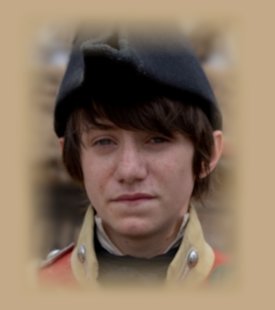Post by William Howe on Jun 11, 2014 18:36:49 GMT

Name: William Howe, 5th Viscount Howe
Age: b. 10 August 1729 (almost 46)
Physical Appearance: Described as "tall and dark", William Howe may not be the most physically imposing commander on the battlefield, but he certainly holds himself like one. He carries himself with presence and military formaility. Off the battlefield, he can quickly become sullen and sallow nursing a drink while the responsibilities of being a military leader weigh heavily on his shoulders. He was a spry thing once at the height of his career, but his age quickly caught up and is showing. Even so, he lives in the shadow of his brother and as the youngest of three sons.
Strengths: William Howe is perhaps best known as a military commander and his prowess in strategy and military tactics. He was known for disciplined training among his troops and being very concerned for the treatment and well-being of his men. Howe was able to adapt to the colonial terrain and for the most part, seen favorably in the eyes of his superiors and fellows. He was a firm believer that tactical maneuvering and not outright battles were key to winning wars.
Weaknesses: Notably, Howe had a love for women, drink, and gambling. Though married, he was known to have a mistress, Betsey Loring, whom he met in Boston and later moved to New York. She apparently had considerable sway over his opinions and actions. Also, his successor Cornwallis believed that Howe lacked ambition. He had a reasonable military record winning about as many battles as he lost. Until the Seige of Boston and the Battle at Bunker Hill, Howe strongly disagreed with the Crown regarding the treatment of the colonies. He was an advocate of peaceful settlements, but eventually grew to resent the colonists.
Background: William Howe was born the youngest of three sons to Emmanuel Howe. He received an education at Eton College. At age 17, he entered the Duke of Cumberland's Dragoons with a cornet's commission. For two years, he served in the War of Austrian Succession. Afterwards, he was transferred to the 20th Regiment of the Foot and befriended James Wolfe who would later help advance Howe's career. By 1750, he was promoted to captain. With the outbreak of the Seven Years War, Howe was promoted to Major and given command of a newly formed regiment. He had great success and grew in popularity.
In 1758, Gen. George Howe, William's oldest brother, was killed. William replaced him in Parliament representing Nottingham. During the Seige of Quebec in 1759, Howe commanded a battalion under Gen. Wolfe. Howe helped lead the British forces to victory at the Battle of the Plains of Abraham. His bravery and actions led to his promotion to Brigadier General.
After the War, Howe returned to England and was appointed Governor of the Isle of Wight. Given his skill as a military leader, Howe was asked to train the light infantry in the British Army. He introduced new drills and techniques based on what he learned overseas.
On account of his experiences in the Seven Years War, Howe was sympathetic to the colonies and openly opposed the Intolerable Acts. He asserted that the British army could not conquer America and was prepared to serve second to Thomas Gage. In 1774, he was reelected and assured his constituents that he would not serve against the colonies. However, in 1775, he agreed to command British forces in America. He claimed that the order was given by his commanding officers who in turn received the order from the king. He had no choice but to serve in the colonies as was his duty.
Howe arrived during the Seige of Boston bringing reinforcements to Thomas Gage. After assessing the situation, Howe decided it was necessary to secure the higher ground at Forchester Heights. However, word of the plans was leaked to American forces who then fortified Breed's Hill. Howe personally led the frontal assault as the terrain prevented him from performing a flanking maneuver. Orders were given to not fire until thirty yards from the American position. The British secured a victory, but at the cost of over 1000 casualties. All of Howe's officers were wounded or killed. The high toll on the British forces clearly left an impact on Howe. The American colonists lost favor with Howe, and he stopped supporting them in Parliament.
Resources: franklaughter.tripod.com/cgi-bin/histprof/misc/howe.html, www.revolutionary-war.net/general-william-howe.html, militaryhistory.about.com/od/americanrevolutio1/p/whowe.htm, www.revolutionarywararchives.org/howewilliam.html, en.wikipedia.org/wiki/William_Howe,_5th_Viscount_Howe, www.britannica.com/EBchecked/topic/273530/William-Howe-5th-Viscount-Howe









